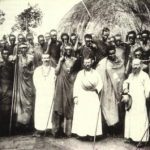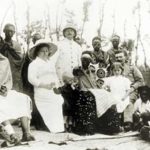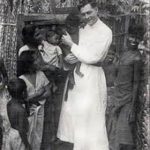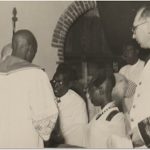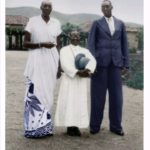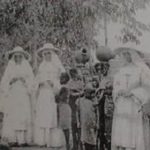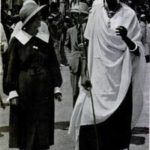The Missionaries as Mediators to Court Confrontation
As Musinga consolidated his hold on power, the threatened notables sought to protect themselves by improving their own relations with the missionaries. The Fathers suddenly found notables were willing to provide men and materials for their construction projects, and were…
The Court, the Germans, and the Missionaries
Faced with further trouble with the Fathers in the next months, Musinga again made use of Kandt and von Grawert. When the Fathers wanted to cut timber in the forest of Budaha, north of Nyantango, Musinga replied that this was…
The White Fathers’ Local Relationships
The Fathers preferred to settle all but the most serious disputes with minimal involvement by the German authorities. Most of their stations were too distant from German posts ta be able to count on prompt aid, but even at Mibirizi…
The Dilemma of Proselytization
During their first years in Rwanda, the Fathers asked a different kind of service from the people in their vicinity, one that previous authorities had never demanded. Anxious to win converts, the missionaries and their catechists visited the neighboring bills…
The Dilemma of Proselytization
During their first years in Rwanda, the Fathers asked a different kind of service from the people in their vicinity, one that previous authorities had never demanded. Anxious to win converts, the missionaries and their catechists visited the neighboring bills…
Adjudicating-or Avenging-Conflict between the Missions and the Cour
News of the violence at Rwaza may have briefly revived hopes at Court of expelling the Europeans from Rwanda. In early August the Fathers at Save heard that twenty bulls were being sacrificed daily at Nyanza to determine if such…
Ten. Freedom for oppression. Nationalism or social justice
The formation of political parties and independence were in the air by the end of 1956. In Leopoldville a group of Catholic intellectuals led by Abbé Joseph Malula, Joseph Ngalula and Joseph Ileo had issued a manifesto in which the…
Nine. Elite and counter-elite
At a meeting of Superiors of mission stations held in September1945 reforms of the catechumenate were mapped out. The period of postilancy was to last sixteen months, with two sessions of doctrine and reading per week. Those passing the final…
Eight. The Catholic chiefs
The Belgians had no intention before the Second World War of trying to govern Rwanda without the aid of the feudal system. They did, however, wish to trim it to manageable proportions and reduce its gravest injustices to a minimum.…
Seven. The Conversion Of The Tutsi
When Léon Classe returned to Rwanda in 1922 the Tutsi had already abandoned direct opposition to Catholicism for cautions accommoda-tion, and within the next decade were to adopt a third course — conversion. The Hutu inside the Church who had,…

